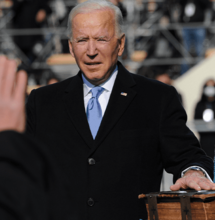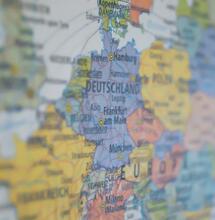Brain Scans Reveal Marijuana-Like Medicine Could Effectively Treat PTSD

Researchers studied CB1 receptors in the brains of PTSD sufferers
Researchers studied CB1 receptors in the brains of PTSD sufferers
| Military officer screaming at female soldier during training" [Shutterstock] |
SOURCE: www.rawstory.com
AUTHOR: Stephen C. Webster
Marijuana-like medicines that lack the plant's psychoactive properties can be used to effectively treat some symptoms of post-traumatic stress disorder (PTSD), researchers at New York University Langone Medical Center explain in a study published Tuesday in the scientific journal Molecular Psychiatry.
Using brain imaging technology, researchers studied the CB1 receptors in the brains of people suffering from PTSD and found that they had more of these receptors in gray matter associated with fear and anxiety than people who'd experienced trauma but did not have PTSD.
They looked into whether the receptors would be more available after noticing that many PTSD sufferers, a vast majority of them former members of the military, tend to self-medicate with marijuana abuse. Marijuana is known to contain varying concentrations of endocannabinoids, which are already present in the human brain, designed to act like a switch to turn on the body's endocannabinoid system.
Research suggests the endocannabinoid system plays an important role in regulating chemicals associated with elevated stress levels, leading NYU scientists to portend that marijuana-like drugs that increase the level of endocannabinoids in the brain could lead to an effective treatment for PTSD-sufferers.
"We want to increase the concentration of these endocannabinoids," study author Dr. Alex Neumeister told Fox News. "So we are currently working on the methods to do this, and we have developed a compound that is able to increase the concentration of endocannabioniods without attacking the receptors. It helps restore a normal balance of this chemical in the brains of those with PTSD."
The results are probably not surprising to anyone with PTSD or anyone who follows the marijuana reform movement closely. A long-pending lawsuit that was filed by the creator of a group called Veterans for Medical Marijuana, seeking to challenge the Drug Enforcement Agency's classification for marijuana as having no medical value, was thrown out by an appeals court in January. The court ruled that there are no "adequate and well-controlled studies proving efficacy" of marijuana for medical uses, which is a condition for the DEA to consider a petition for reclassification. Advocacy group Americans for Safe Access said they plan to appeal that ruling to the Supreme Court.
The DEA's continuing classification of marijuana as a Schedule 1 substance, similar to drugs like LSD and Peyote, ensures that medical research on the drug will continue to be limited in the United States. Meanwhile, key U.S. ally Israel began experimenting with giving soldiers marijuana to ease their PTSD symptoms in 2004. Government-licensed scientists there have since developed a strain of medical marijuana that does not contain the psychoactive compound THC, which gives users the characteristic "stoned" feeling.



